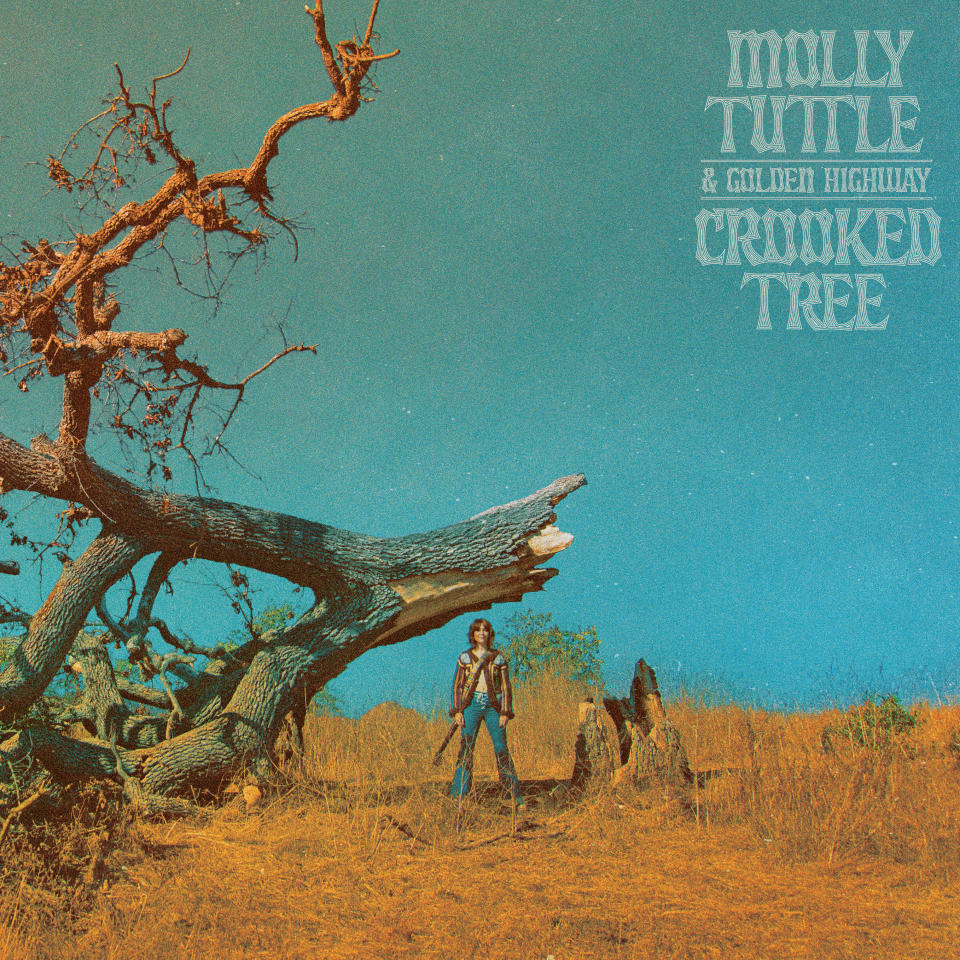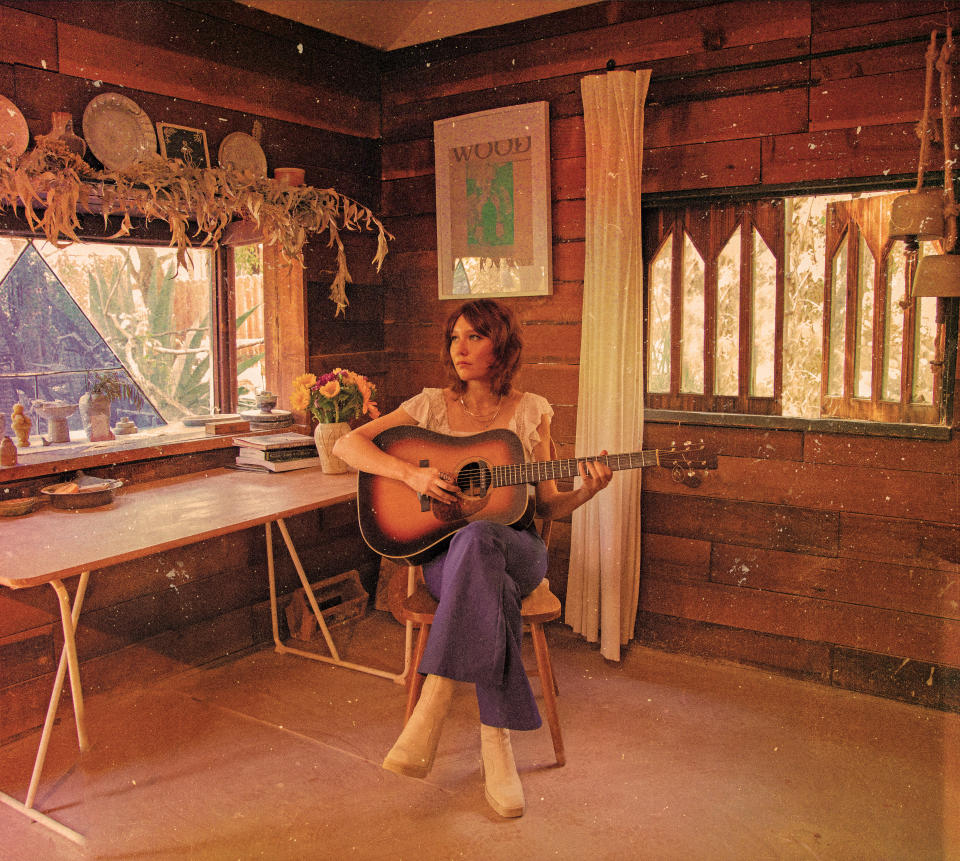Molly Tuttle Breaks Out Beyond Her Bluegrass Roots

Molly Tuttle has made the leap.
There aren’t a lot of bluegrass artists who are able to establish successful commercial careers, but Tuttle isn’t just any bluegrass artist. She’s a virtuoso guitarist with a degree from the esteemed Berklee College of Music in Boston and her album “Crooked Tree” led to not one, but two Grammy Award nominations.
More from WWD
The 29-year-old is up for Best Bluegrass Album and Best New Artist.
“I was hoping for that bluegrass album nomination,” Tuttle says during a Zoom chat from her home in Nashville, Tennessee. “But Best New Artist? Whoa, I wasn’t expecting that one.”
Although Tuttle grew up immersed in roots-inspired music — her father is a music teacher and multi-instrumentalist and her grandfather played the banjo — her first two albums weren’t as steeped in tradition. Her debut, “When You’re Ready,” which was released in 2019, was more “folk Americana,” she said, and the second, “But I’d Rather Be With You” — which she described as a “quarantine project” — is a covers album offering her take on tunes from artists as varied as the Rolling Stones and Harry Styles.
But it wasn’t until she embraced her musical heritage that the world took notice.
“I grew up playing bluegrass with my dad,” she says. “Being cut off from the community during the quarantine times made me really miss that communal aspect to the music. Bluegrass is kind of unique because you’ll go to a festival and see the musician you just saw on stage out in the crowd jamming. Everyone’s hanging out and the same songs you might hear on stage, people will be playing in their campsite. It feels like a big family in a way. And I was really missing that.”
So she decided it was time to make a bluegrass record — but one with a distinct difference. Instead of remaking mountain music from years ago, Tuttle wrote every song on “Crooked Tree” and took on contemporary issues, such as women’s empowerment.

That’s an issue she knows something about since she was named Guitar Player of the Year at the International Bluegrass Awards in both 2017 and 2018, the first woman to receive the honor.
Although she doesn’t see herself as bluegrass’ version of a feminist, Tuttle says she “can’t help writing songs with that slant.” She references one of her heroes, Hazel Dickens, a bluegrass pioneer who wrote many “feminist anthems,” along with Loretta Lynn, as artists whose songs “really speak to me,” she says. “So I felt like I was kind of writing in the tradition of the music even though people think of it as such a male-dominated space.”
She also tapped into the bluegrass community in Nashville by bringing the legendary musician Jerry Douglas on board to co-produce and play dobro on the album, along with special guests Gillian Welch, Margo Price, Billy Strings, Old Crow Medicine Show, Dan Tyminski and Sierra Hull. “It felt like a gathering, almost like a party,” Tuttle says, “because we hadn’t gotten to play music together for so long.”
The end result is a work that has reached beyond the niche bluegrass community.
“This was the first time I made a record I felt really confident about,” she says. “I think partially because I grew up playing this music I know so well. And I felt really confident about the songs, which is the most important part for me. I knew people who liked bluegrass would like this album, but it’s definitely reached more people than I thought it would.”
It has also introduced her skill on the guitar to a larger audience. Tuttle, who also plays the banjo, says: “You’ll see women fiddle players and mandolin players a lot more than lead guitar. I’ve read that women are buying the majority of guitars right now, but they’re buying them online. When I go into a guitar store, I get treated like I don’t know anything. They’ll be telling me what picks to use or explain the different types of strings when I know what kind of string I want. I think that says a lot about why there aren’t more women guitar players, because these guitar spaces are just not fun to be in.”

Tuttle recalls during her time at Berklee, she was the only woman in guitar class and “I would often get weird comments and just felt extra pressure to prove myself.”
But it wasn’t just music where Tuttle had to overcome roadblocks. At the age of three, she was diagnosed with alopecia areata, an incurable autoimmune disease that results in the total loss of body hair.
Until she went to high school, Tuttle would wear hats to cover her bald head, but once she decided to wear wigs, it led to “a lot less social anxiety, which was great because I was always having these questions as a kid or people whispering and pointing at me and/or even bullying me.”
Wearing a wig has turned out to be a double-edged sword since it felt like she was keeping her medical issue a secret.
“After years of that, it didn’t feel good. So in my early 20s, I decided that I had to break out of this and be completely transparent. It was this huge weight off my shoulders and it gave me so much confidence to share it first with just close friends, and then lots of friends. And then finally just post on social media a picture of me not wearing my wig. Then this year, I actually performed a couple times and took off my wig on stage,” she says. “I want to do that more because I just think if I can share that part of who I am, it can create a good ripple effect where other people feel more comfortable with themselves as well.”
And it helps create awareness of the condition. “If more people knew what it was, we wouldn’t have to explain it constantly,” Tuttle says. “It can just be exhausting going out in public without wearing a wig because you just find yourself talking about it all day.”
Come Feb. 5, Tuttle hopes to be able to talk less about alopecia and more about her Grammy awards. At this point, she says she isn’t sure what she’s going to wear to the big event since she doesn’t work with a stylist. But she is partial to a couple of Nashville labels — Any Old Iron and Laura Citron — and expects to talk to them about her outfit. “But I’m also open to wearing something totally new that’s outside the box for me,” she says.
Beyond the Grammys, what’s next for Tuttle? “I think I need to go back into the studio over the winter,” she says. But whether her new work will be bluegrass or something else remains to be seen. “I haven’t really figured out totally what it’s going to be. I want to leave some mystery, but people can definitely expect music next year.”
Best of WWD

